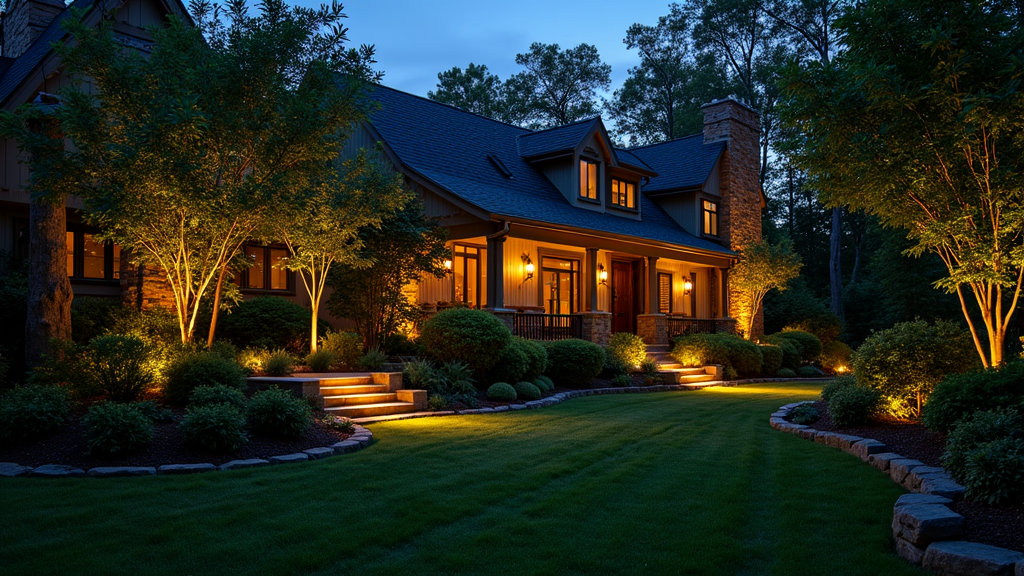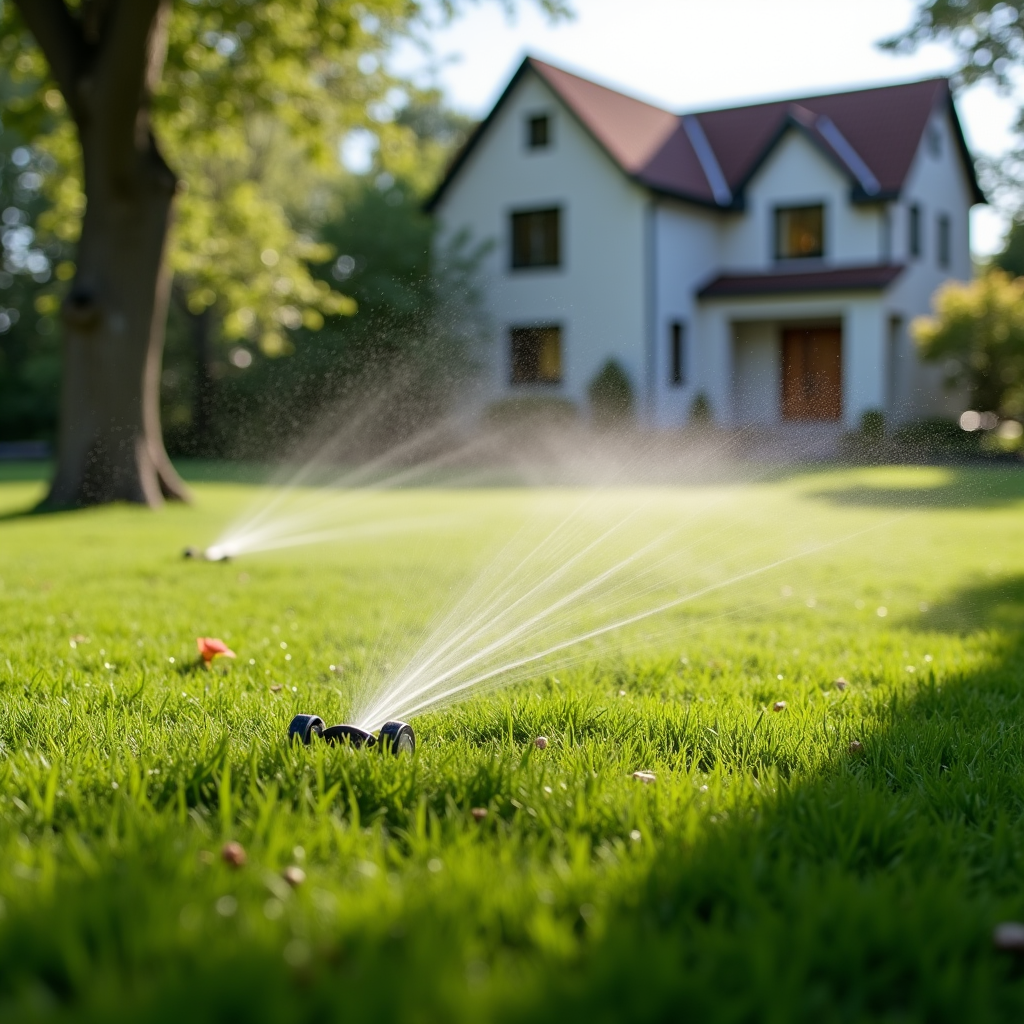Introduction
In our fast-paced world, having a personal sanctuary at home is more essential than ever. Homeowners in North Carolina often seek to create their own private oasis amid the hustle and bustle of daily life. Landscaping for privacy can be an art and a science, blending aesthetics with functionality. This article will guide you through creative solutions tailored specifically for North Carolina homes that not only enhance your property’s beauty but also provide the seclusion you desire.
What Is Landscape Design?
Landscape design is the art of arranging various elements of nature—like plants, trees, and water features—to create aesthetically pleasing outdoor spaces. But it goes beyond mere decoration; effective landscape design considers environmental sustainability, maintenance, and privacy.
The Importance of Landscape Design in North Carolina
North Carolina's unique climate allows for a diverse range of flora and fauna, which can be harnessed in your landscape design to create privacy without sacrificing beauty. Utilizing native plants not only enhances the aesthetic appeal but also promotes biodiversity.
Understanding Privacy Needs
Why Do We Crave Privacy?
Humans are social creatures but have an innate desire for private spaces where they can recharge and relax. Whether it's enjoying a quiet morning coffee or hosting a lively barbecue with friends, privacy enhances these experiences.
Identifying Your Privacy Goals
Every homeowner has different needs when it comes to privacy. Are you looking to block out noise from neighbors? Do you want to shield your outdoor space from prying eyes? Understanding your goals helps in creating an effective landscaping plan.
The Role of Fences in Privacy Landscaping
Types of Fences Suitable for North Carolina Homes
Fences are one of the most straightforward solutions for enhancing privacy. Here are some types popular among homeowners:
Wooden Fences: Classic and customizable. Vinyl Fences: Durable and low-maintenance. Chain Link with Privacy Slats: Cost-effective option. Natural Barriers: Bamboo or hedges as fencing alternatives.Pros and Cons of Using Fences
| Type | Pros | Cons | |-------------------|------------------------------------------------|----------------------------------------| | Wooden | Versatile design options | Requires maintenance | | Vinyl | Low maintenance | Limited aesthetic options | | Chain Link | Affordable | Minimal visual appeal | | Natural Barriers | Eco-friendly | Takes time to grow |
Using Plants for Natural Privacy Screens
Choosing the Right Plants for Your Space
Plants can serve as beautiful natural barriers that offer both beauty and seclusion.
- Evergreens: Such as Leyland Cypress or Eastern Red Cedar provide year-round coverage. Deciduous Trees: Like maples or oaks offer seasonal changes while also blocking views.
Layering Plants for Maximum Effect
Creating layers adds depth to your landscape design. Combine taller trees with lower shrubs and ground cover to create a lush screen that evolves throughout the seasons.
Creative Hardscape Solutions
Incorporating Walls and Stone Features
Stone walls add character while creating barriers against prying eyes. Consider using natural stones that blend into the surrounding landscape for a more organic look.
Patios as Private Retreats
Designing patios or decks with strategic landscaping around them creates secluded outdoor living spaces perfect for entertaining or relaxation.
Water Features: A Unique Approach to Privacy
How Water Features Enhance Seclusion
Water features like fountains or ponds can act as calming sound barriers while adding visual interest to your yard.
Designing Around Water Features
Surrounding water elements with tall grasses or flowers not only enhances their beauty but also provides additional privacy by obstructing sightlines.
Outdoor Structures: Pergolas and Gazebos
The Benefits of Outdoor Structures
Adding structures such as pergolas or gazebos gives you additional vertical space that can be adorned with climbing plants, creating a shaded nook away from public view.

Designing Your Structure
Consider incorporating curtains or removable panels that allow flexibility depending on the season or event you're hosting.
Lighting Strategies for Enhanced Privacy
The Role of Outdoor Lighting
Strategically placed lighting not only beautifies your yard but also adds an element of safety during nighttime gatherings while maintaining privacy.
Types of Lighting Options
- Pathway Lights: Illuminate walkways without compromising privacy. Uplighting: Highlight trees or features while keeping areas secluded. Lanterns: Provide soft light around seating areas without being intrusive.
Utilizing Vertical Space for Increased Privacy
Green Walls: An Innovative Solution
Vertical gardens can serve dual purposes—decorative and functional—allowing you to maximize limited space while ensuring maximum seclusion.
How To Create Your Own Green Wall
Choose suitable plants based on sunlight exposure. Use a sturdy trellis system. Ensure adequate irrigation systems are in place.Combining Elements: Creating Cohesion in Landscape Design
Blending Different Solutions For Maximum Impact
Mixing hardscape elements (like fences) with softscape (like plants) creates harmony in your yard while addressing various aspects of privacy concerns effectively.
Example Layout Ideas
- A wooden fence combined with tall columnar evergreens creates a layered effect. A stone wall alongside flowering shrubs offers visual interest without compromising security.
FAQs About Landscaping for Privacy in North Carolina
1. What’s the best plant choice for creating natural privacy?
- Evergreen trees like Leyland Cypress are excellent choices due to their fast growth rate and dense foliage year-round.
2. How tall should my fence be for optimal privacy?
- Generally, a height between 6-8 feet works best depending on local regulations; however, always check zoning laws before installation!
3. Can I use bamboo as a natural barrier?
- Yes! Bamboo grows quickly and provides excellent coverage; just ensure you choose clumping varieties instead of running types to control spread!
4. Are there any restrictions on using certain plants?
- Some invasive species may have restrictions; always consult local guidelines before planting!
5. How do I maintain my landscaping features over time?
- Regular pruning, watering schedules according to plant needs, and routine inspections will keep every element thriving!
6. Can I hire professionals specializing in landscape design North Carolina?

- Absolutely! Many firms specialize in tailored designs focusing on privacy solutions suited explicitly towards local climates!
Conclusion
Creating an oasis of tranquility within your home through thoughtful landscaping is entirely feasible! By understanding your specific needs regarding privacy—and employing creative solutions tailored specifically toward North Carolina's unique environment—you'll transform your outdoor space https://telegra.ph/Garden-Maintenance-Must-Haves-for-Every-Homeowner-in-Stokesdale-NC-03-07 into more than just land; it'll become an extension of who you are! So whether it’s using fences, plants, hardscapes, or even water features—the possibilities are endless when it comes down to crafting that ideal retreat right outside your door! With proper planning & execution guided by expert advice—achieving this dream becomes all too real! Remember that great landscape design involves considering aesthetics AND functionality—and above all else—creating comfort within YOUR personal sanctuary!